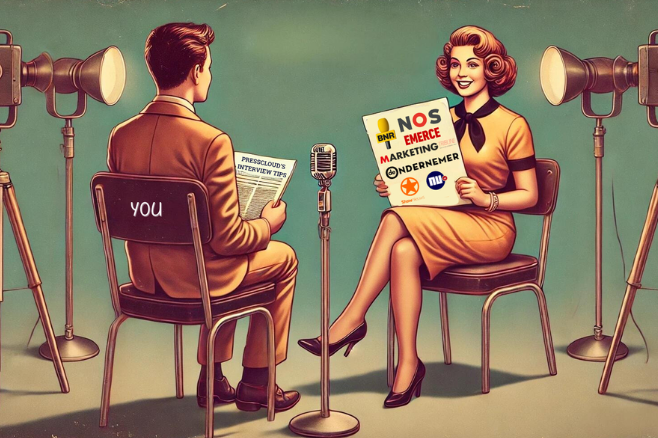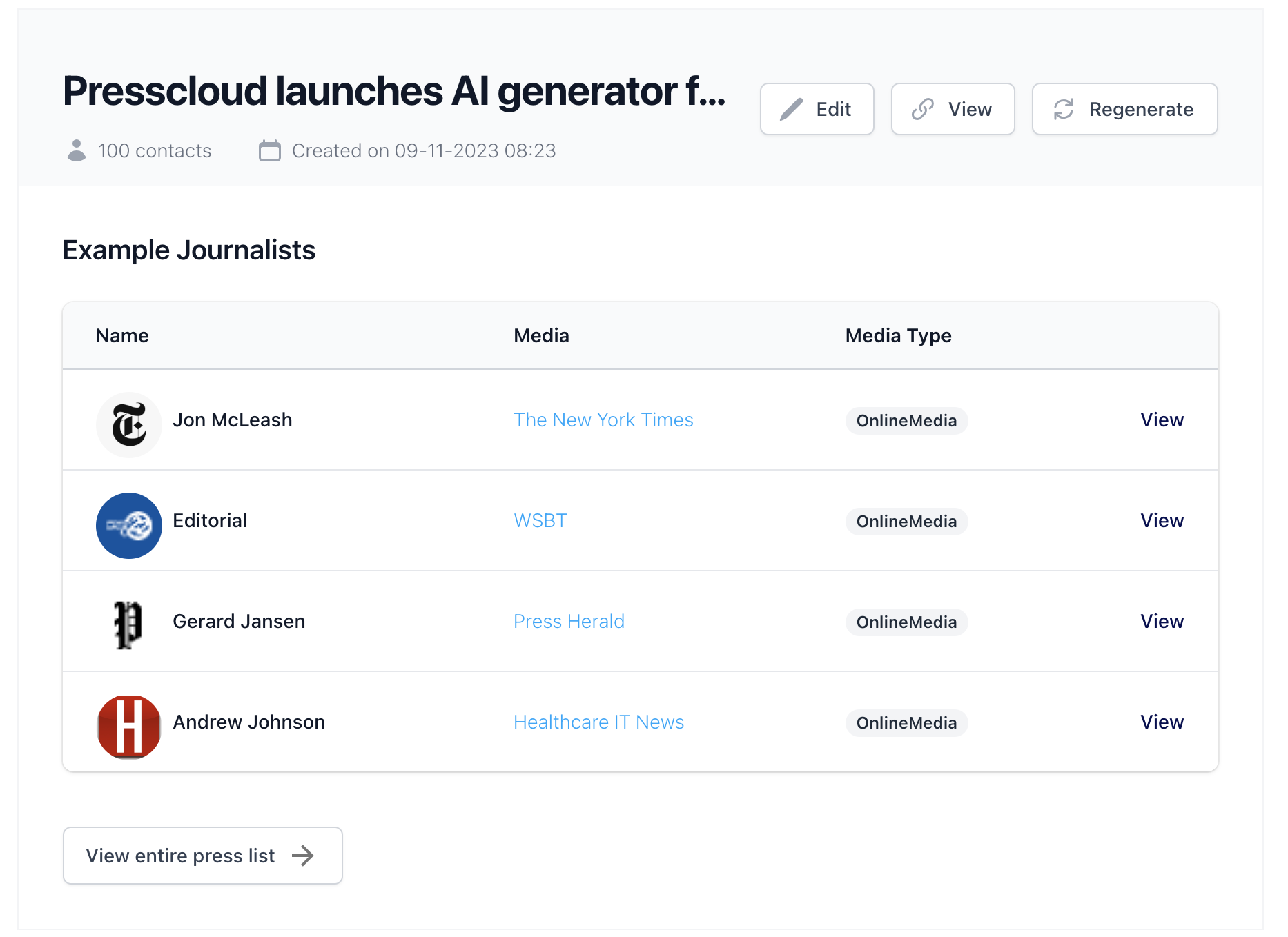Yes! You've landed an interview. That's great, because an interview in a leading magazine, podcast, or TV show can give your company a significant boost. Now it's important to know: how do you prepare for it? First and foremost, you want to come across as likable. Conversations on radio or TV are primarily popularity contests: after all, no one wants to do business with an arrogant jerk.
You want to come across not only as nice but also as knowledgeable and competent. By showcasing your knowledge, you can become an authority in a particular market. Therefore, you want to convey your information to the public as clearly as possible. But how do you go about this? In this blog, we share six tips to make your interview a success.
Think in advance about what you do and don't want to say. Practice the conversation with critical colleagues or friends to identify gaps in your story. Learn about the journalist, the medium, and the audience. This way, you can anticipate possible questions and issues that may come up.
You can also ask yourself: what else would a journalist want to know? Think about topics that are currently in the news and relevant to your industry. Being prepared makes you come across as confident and knowledgeable.
Tip 2: Be nice and on timeCome across as likable and make it a conversation. An interview is not an interrogation. Try to turn questions back on the interviewer and make the editor's life easier by quickly responding to requests for information or visuals.
Even if a dumb or cynical question is asked, use it as an opportunity to tell more about your proposition. Always think about how your statements come across to readers, viewers, or listeners.
You don't have to answer every question. If you don't want to disclose current revenue, for example, share what your projected revenue is for three years from now. Try to align the interests of the interviewer and interviewee without crossing your own boundaries.
Tip 4: Carefully take controlTake control if tension arises and be concise. Do not be tempted into making statements you would rather not make. Don't be loose-lipped: 'off the record' doesn't exist. Always ensure you can review texts before publication.
Tip 5: RelaxRemember that you are the expert. An interview is a sign of interest in you or your company. However, you don't need to know everything, and it's okay to admit if you don't have an opinion on something. Focus on your expertise and stay calm.
Tip 6: Utilize media attentionShare the publicity you've achieved on your own channels. Write a blog about it on your website or place logos of the media in which you have appeared on your site. This builds trust with visitors.
For example, share a publication on your company's LinkedIn page and use a modest advertising budget to reach even more people. Smartly combine owned (PR) and paid (advertising) media for maximum impact.
With these tips, you are well-prepared for an interview in the media. Make sure you can pitch your story fluently by practicing it often. Come across as confident and knowledgeable, dare to say no, carefully take control, relax a bit, and utilize the media attention that follows. All of this contributes to a successful PR strategy.

